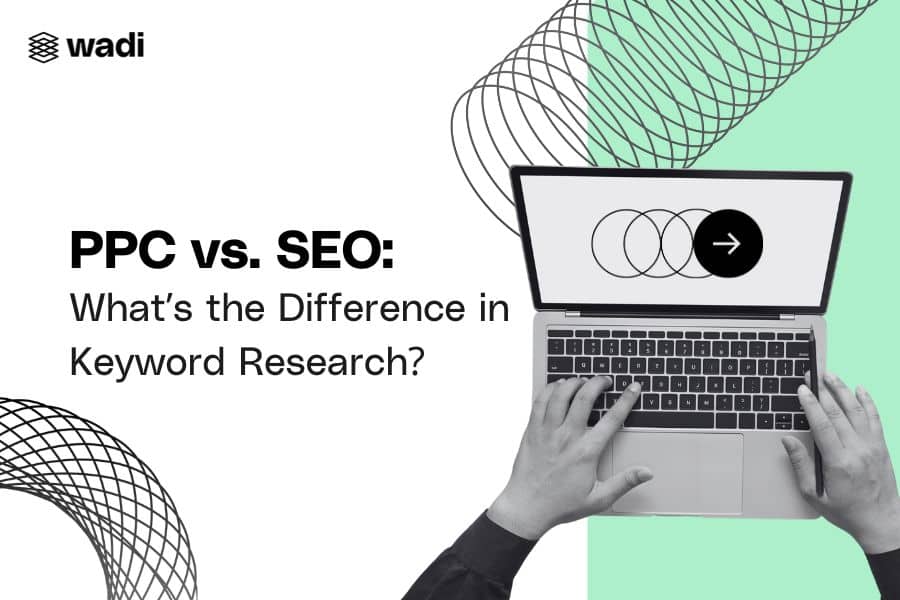Table of Contents
Toggle
What You’ll Learn
- The fundamental principles and differences between PPC advertising and SEO.
- How to conduct effective keyword research for B2B brands.
- The importance of understanding search intent and industry-specific terms.
- Strategies to match search intent with conversion goals.
- The differences in SEO and PPC keyword research and their respective impacts on your marketing strategy.
- How to create and utilize separate keyword lists for SEO and PPC.
- Ways to align and harmonize your SEO and PPC strategies for optimal ROI.
Keyword Research for B2B Brands
Keyword Research for B2B
Understanding the Science Behind Keyword Research
Search Intent
- Informational Intent – keywords used to find specific facts or data (e.g., Hamburger recipe)
- Navigational Intent – keywords used to locate a website or landing page (e.g., SEO keyword research tools)
- Transactional Intent – keywords to find products or services (e.g., White Nike Air Max’s)
- Commercial Investigation – keywords to research a topic (e.g., Best restaurants near me)
Industry Terms & Acronyms
Matching Search Intent with Conversion
What’s the Difference Between SEO and PPC Keywords
SEO Keyword Research
PPC Keyword Research
PPC keyword research is more conversion-focused because the links are guaranteed to be viewed by users. Brands should select PPC keywords that will get immediate attention and easily communicate your brand’s products or services.
Compared to SEO keywords, PPC keywords focus on high-intent traffic to encourage clicks and promote sales.
Why do B2B Brands Need Two Separate Keyword Lists?
Because SEO and PPC keywords are used differently, B2B brands need two separate lists to create effective SEO and PPC campaigns. While there will likely be some overlap, brands should aim to use different keywords simultaneously to improve the chances of gaining web traffic.
A brand’s SEO keyword list will almost always be longer and broader in scope. Brands should prioritize SEO keywords that rank high in search volume and low in competitiveness. These keywords will be the easiest to rank for and improve organic search volumes.
A company’s PPC keyword list will likely be smaller and change more frequently. B2B brands should focus on PPC keywords with high search volumes and conversion rates. Because internet trends can quickly change, PPC keyword lists should be regularly updated.
How SEO & PPC Keyword Research Can Work Together for B2B Marketing
Similar to a team’s offense and defense, brands should align their SEO and PPC strategies to create a winning formula.
When SEO and PPC strategies work in harmony, they can benefit each other and improve your marketing ROI.
When brands combine their SEO and PPC efforts, they can save time and money. Most keyword research reports can be used for SEO and PPC campaigns, reducing research costs.
SEO and PPC strategies use different metrics to measure a campaign’s effectiveness. Where SEO will use organic impressions, average ranking, and organic click-through rates, PPC campaigns use cost-per-click, click-through rates, and conversion metrics.
Looking at the effectiveness of different keywords for SEO and PPC campaigns, B2B brands can identify opportunities and avoid ineffective keywords.
Moreover, brands can leverage insights from PPC campaigns to refine their SEO strategies and vice versa. For instance, high-performing PPC keywords can be incorporated into SEO content to boost organic rankings, while successful SEO keywords can be targeted in PPC campaigns for immediate traffic.

Integrating AI Tools for Enhanced Keyword Research
Key Takeaways
- PPC and SEO are essential tools for improving search ranking and customer engagement, each with unique approaches and benefits.
- Effective keyword research is crucial for both PPC and SEO strategies, with a strong focus on search intent and industry-specific terms.
- Understanding and aligning search intent with conversion goals can significantly boost marketing campaign effectiveness.
- SEO and PPC require separate, tailored keyword lists to maximize their respective strengths and impacts.
- Integrating and harmonizing SEO and PPC efforts can lead to cost savings, improved ROI, and more comprehensive digital marketing strategies.
- Leveraging AI tools for keyword research can enhance accuracy, efficiency, and alignment with market trends, offering a competitive edge.
Conclusion






